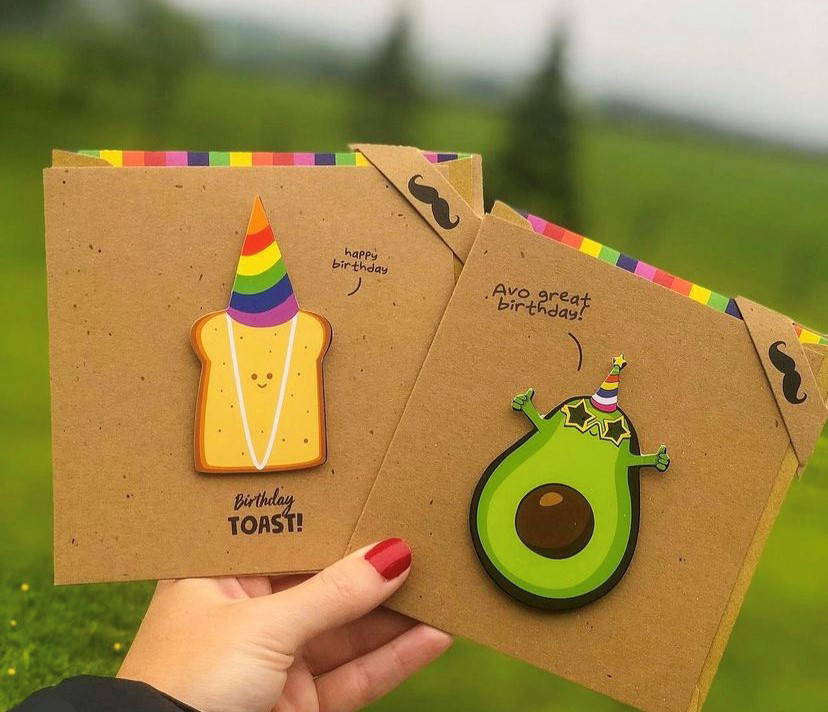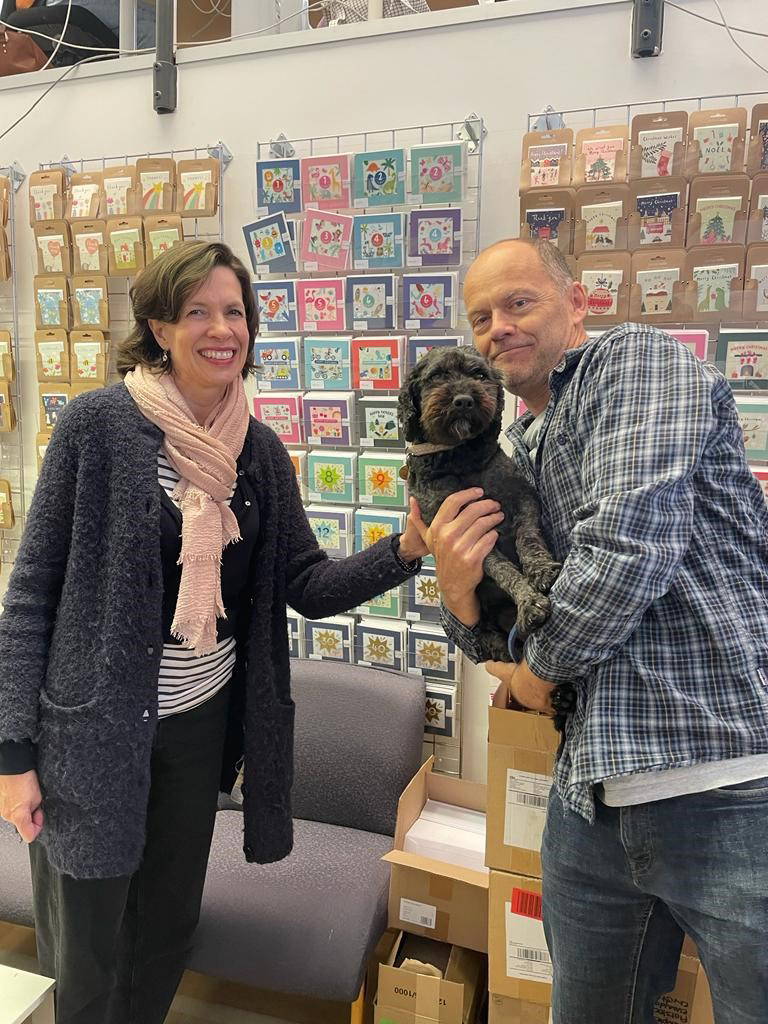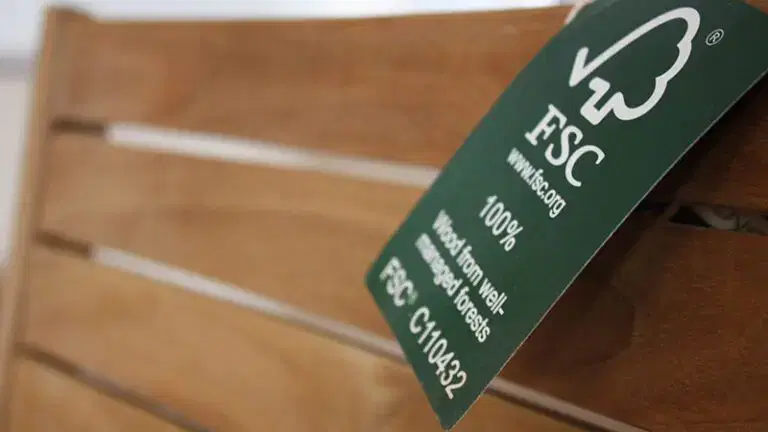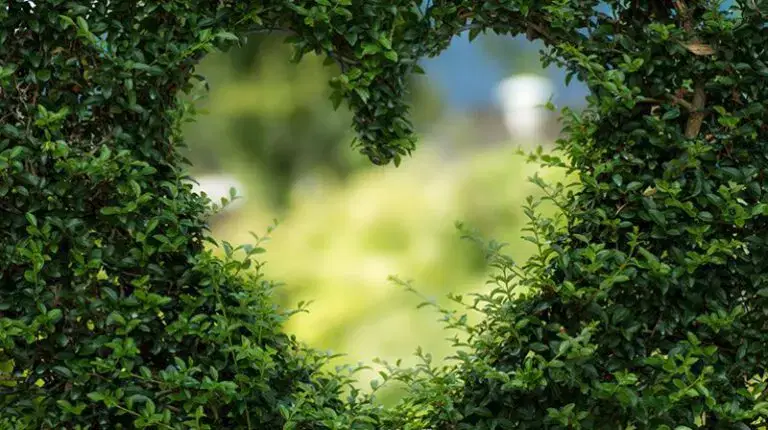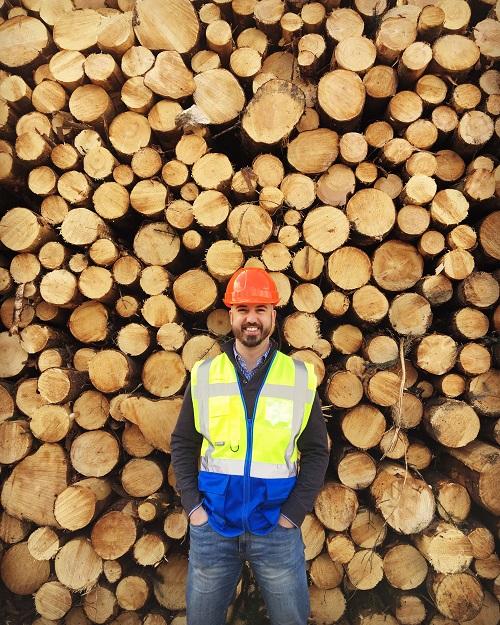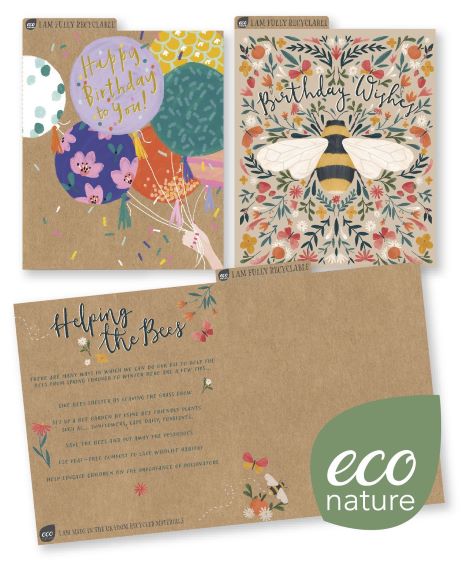
The Greeting Card Association’s series of blogs covering Sustainability in the Card Industry is designed to share good practice, celebrating the work that is being done in our industry to reduce our environmental impact and inspire others.
Thank you to Jakki Brown from Max Publishing who kindly allowed us to share these excerpts from articles featured in Progressive Greetings in 2021.
While fiercely competitive, and each with their respective capabilities, personalities and USPs, the UK greeting card industry’s dedicated trade suppliers collectively play a vital link in enabling the sector to not only deliver on the sustainability front, but to continue to push forward.
Jakki Brown, Progressive Greetings October 2021
From board suppliers to envelope manufacturers, litho printers to digital maestros, foil companies to fulfilment houses, at the foundations of this industry is its very strong supply chain – and what’s more, it is a supply chain that has in many cases been ahead of the curve on the sustainable front, pre-empting the reality that is now staring us in the face on climate change. You would be hard pushed to find a specialist greeting card printer that does not have environmental credentials that go back years.
The Sherwood Group for example published its 14th CSR report with chairman Jeremy Bacon having been a leading light in PG’s Forests of the Future campaign with Trees for Life back in the 1990s/early noughties which resulted in thousands of trees being planted in the Caledonian Forest (including a whole bunch by the fair hands of many publishers who made several trips to the Highlands to dig in!) Bucks-based printers, Windles has won plaudits galore (and with good reason), for its state of the art eco premises as well as its innovative sustainable practices which include recycling broken and unusable pallets and forming briquettes to help power the presses.
Meanwhile, when The Imaging Centre was on the lookout for its new premises to cope with the company’s growth, ensuring that its new home hit the top environmental credentials was top of the wish list, while its straight to retailer Simplicity system (including its latest Simplicity Retail option) minimises waste. And these are far from lone soldiers, Graphite, Herbert Walkers, Abbot Print, Skeet and PJ Print, among others, ensuring that not only the sector’s print credentials are up to scratch, but that alternatives are being trialled and tested on finishes as well as more sustainable packaging options.
With FSC being very much the minimum standard in the industry now, on the board front, the shift towards more recycled content, being driven on all fronts, has resulted in a wider choice for publishers and printers, with GF Smith, Fedrigoni and Antalis being among those to have come out with some cracking new options of late which will also feed into envelopes on the same score. Of course there are still challenges to overcome, coming up with the ultimate in plastic-free rollwrap packaging, further improvements on calendars and other packaged goods, joining the ‘to do’ list, along with the drive to reduce ‘in transit’ waste and adopt more sustainable palette wrapping options but the links are strengthening and the will is very much there.
From going completely naked to setting up dedicated ‘green teams’, committing to using 100% recycled board to re-engineering packaging to make it plastic-free, greeting card publishers have made considerable progression their respective sustainable journeys.
. “We believe you shouldn’t have to choose between caring for your favourite people and caring for your planet…. For over 14 years our cards have been made using FSC-certified materials, plus we have stopped over 350 tonnes of plastic being used in our product supply chain. Our cards and gift presentation will be entirely plastic-free by the end of the year while 100% of our rollwrap is now manufactured in the UK”
Rachel Goodman, creative director of Hallmark
“We believe that when you care enough, you can change the world”, is at the centre of Hallmark’s Corporate Social Responsibility strategy. Over the last few years Hallmark has been steadfast on a strategy of making its products recyclable, reducing waste, and focusing on clean energy. Building on the fact that 100% of Hallmark’s electricity supply is from renewable wind energy the publisher has also been working with its supplier base to reduce VOC emissions, power consumption, chemical waste and industrial water usage, while its ‘no foil to landfill’ scheme means that foil waste is used to create things like fencing, decking and shipping rope.
On the ‘ingredients’ front, it will continue to work with Lake District-based paper company James Cropper using its Cup-Cycled board that is made from upcycling take-away coffee cups; plastic gems have been replaced with paper moulded gems; cotton twine has been replaced with paper twine; nylon ribbon has been replaced with paper raffia; and cotton tassels have been replaced with raffia tassels. Hallmark has also replaced millions of foam pads, replacing these with ‘scrap pads’ that are made entirely from recyclable paper waste. Meanwhile, plastic sleeves and bags have now been completely removed and replaced with either completely naked or transparent paper (tracing paper). Transit packaging has switched to paper banding and paper label, thus eliminating plastic bags used.

The Seed Card Company is not the first company to have adopted seed embedded board for its greeting card ranges, but the environmental message is very much at the heart of this newbie publishing force. Right from the off, The Seed Card Company was a plastic-free and zero-waste business. The company’s printers do not use ink cartridges and any off-cuts from card sheets are reused as another piece of stationery, donated to schools, or planted. Any non-seed stationery items use a 100% recycled, post-consumer or post-industrial waste, eco-friendly board which is completely chlorine and acid-free and is embedded with a mixture of six wildflower seed types. Its envelopes are made entirely from post-consumer waste, recycled FSC material and use a natural starch-based adhesive. Stickers are made from sugarcane and hemp; its tissue paper is 100% recycled and not bleached, and the boxes and mailers used to post orders out in are recycled and recyclable. Plus, for every order, The Seed Card Company plants a tree, in partnership with Ecologi, in Madagascar, with over 2,500 trees having been planted since February this year.
“While there is still a very long way to go, I feel encouraged by the moves being made in the industry. Changing habits and processes that have been instilled in companies and within individuals is very hard and most certainly not an overnight turnaround. However, if every company and every individual makes one change (Power of One) now, it will make a huge difference. It really is a team/industry/country/world effort.”
Kay Patel, co-owner of The Seed Company
Tache Crafts is another publisher who is making small changes with a big impact across greeting card ranges. By reducing the size of Tache’s cards by just 1cm on the width to 125 x 135mm, the publisher’s printers will be able to orientate the boards more efficiently
on each sheet, resulting in 30% less wastage in the production process. Tache’s in-house team has designed a branded, recyclable cardboard corner card clasp as an alternative to cellophane bags for display. After a successful trial period throughout 2021, these have now be rolled out for use as standard. While the corner card clasp will replace cellos as standard, where customers require them Tache will be moving to fully biodegradable cellos, removing the use of plastic packaging.
“We always want Tache to be at the forefront of sustainable greeting cards. We see a 30% reduction in waste on the largest component of our cards as a great step forward, and if we can also pass on savings to our customers, even better!”
Frank Nicholls, creative director of Tache
James Ellis Stevens made a bold commitment to help the planet by joining ‘1% for the Planet’, which has seen the greeting card publisher donate 1% of its turnover to environmental causes. James Stevens, owner of the publishing business explains…
“We joined 1% for the Planet in February 2020 with a commitment to donate 1% of
said James Stevens, owners of James Ellis Stevens
our turnover to environmentally-focused charities. The idea behind 1% for Planet is that
the planet suffers as a result of business activity and this gives something back. Donating 1% of turnover as opposed to profit is also important – the commitment is still made regardless of profitability which has made us think more carefully about what we do.”
James went on to explain: “Every couple of months since we joined 1% for the Planet, we’ve made donations to various charities. Our first donation went to Avon Needs Trees (an organisation committed to buying land to re-wild and plant trees on) while we’ve also donated to Surfers Against Sewage (which focuses on removing plastic from beaches) as well as to Tenwa (which plants trees in Africa) and to several other good causes. Membership of 1% for the Planet has definitely affected how we now design our products. We implemented a UK cello-free policy in 2019. Initially we were still wrapping our cards for some customers, but we decided to completely stop this at the end of 2020, and we are also stopping wrapping our cards for our overseas distributors at the end of this year”.
“At James Ellis Stevens we feel it is really important to start to do things that reduce our impact on the planet. I feel we will look back at this in several years’ time and wonder why we ever wrapped cards. I see it as essential to design single use products to be 100% recyclable though it doesn’t help that each of the 87 county councils in the UK recycle different materials in different ways. We very quickly realised that we’ve only scratched the surface in terms of what we could be doing on the environmental side, but so far we have designed a new plastic-free pack for our mini cards, had a waxed paper bag made as an alternative to outer bags and we’ve started using paper tape on our boxes, but there is so much more still to do.”
If you have a story to tell, or information on changes you have made to your business to share, please contact us so that we can share your story to inspire others.
Further information
For latest information and tips on reducing your environmental footprint see the GCA’s Into a Greener Future blog
For other case studies, changes to the law and other important information please visit our members’ library and see our Environment section (please log in to see all relevant information)


